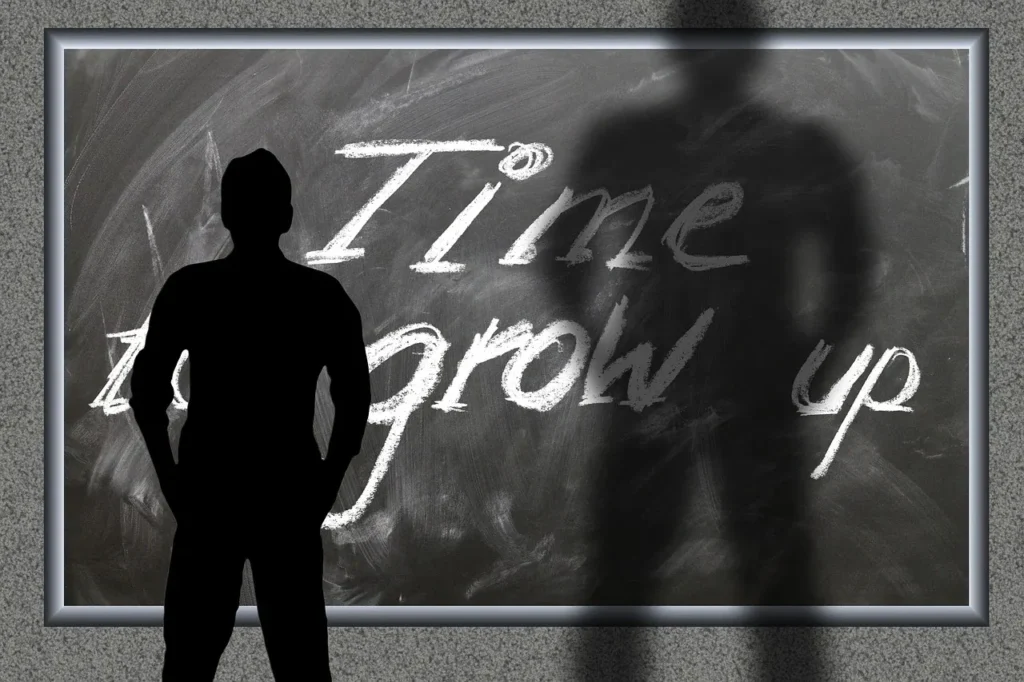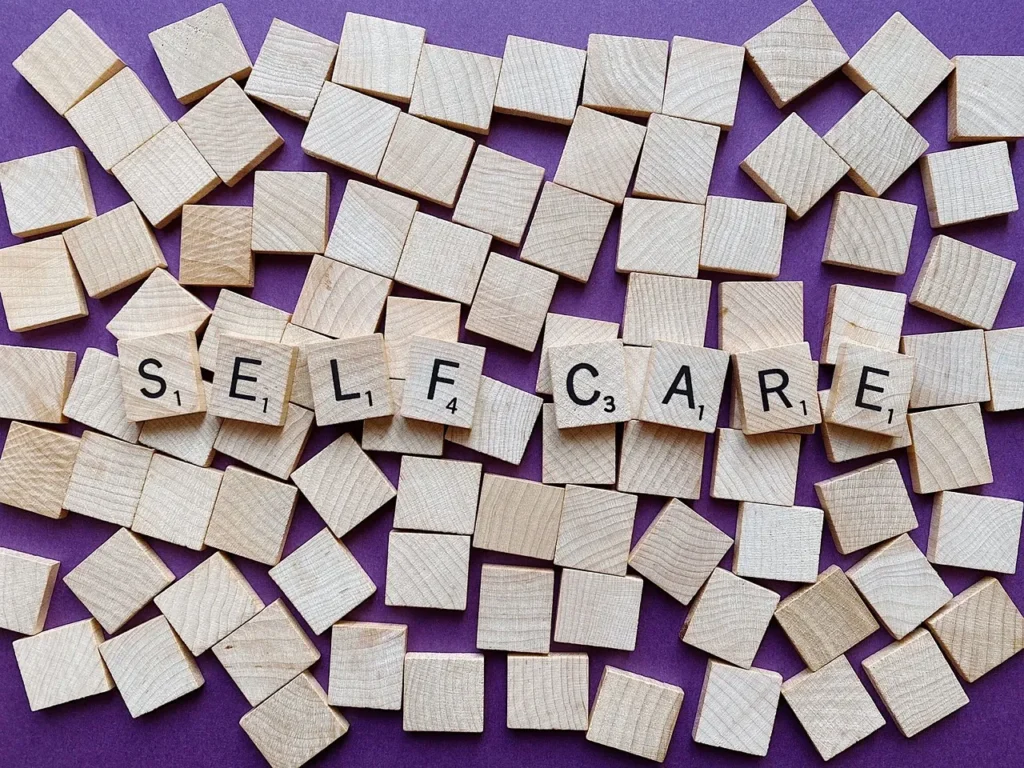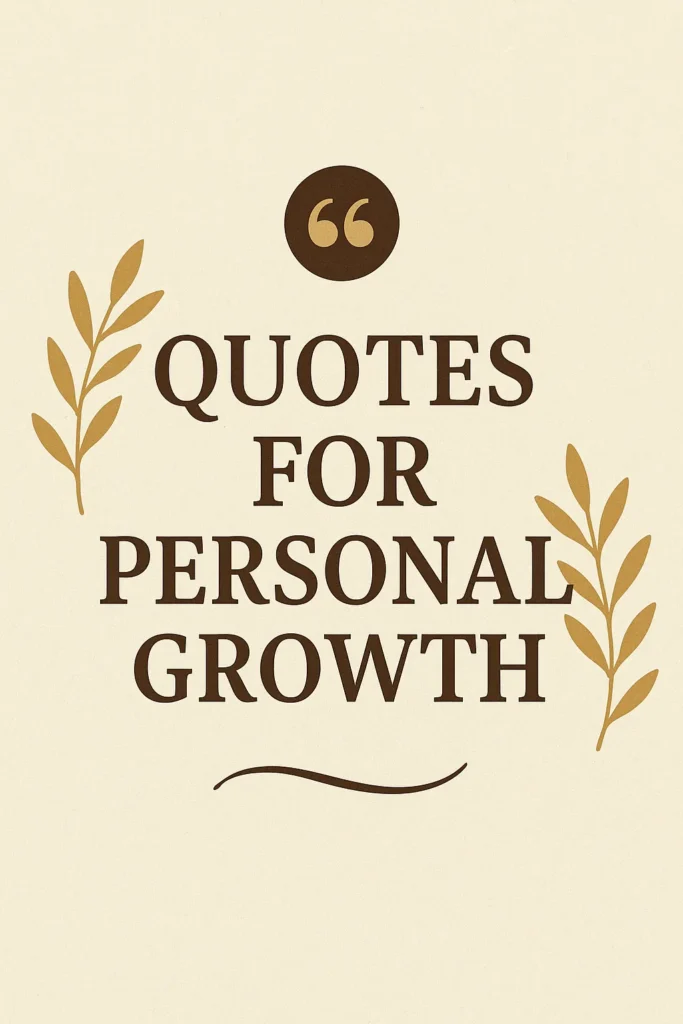How to Use Quotes for Personal Growth: Expert Tips
This guide explores how to use quotes for personal growth through daily reflection, journaling, and affirmations. Learn expert-backed strategies to stay motivated and transform your mindset.
Quotes can be transformative tools for personal growth, helping to shift mindsets, motivate action, and create lasting change when used with intention and expert-backed strategies. Here’s a comprehensive guide on how to use quotes for personal development, including practical expert tips and actionable methods. Learn expert tips on journaling, affirmations, and reflection to transform your mindset.
Why Quotes Matter for Personal Growth
Quotes distill wisdom and inspire self-reflection, reminding people of important truths and offering new perspectives during challenging times. When a quote resonates, it can ignite thoughtful evaluation—encouraging deeper understanding, reframing, and steady growth. According to Dr. Rodney Luster, using motivational quotes strategically helps regulate emotions and sustain motivation throughout change.
Expert Tips: How to Use Quotes for Personal Growth Effectively

1. Start Each Day With a Quote
Begin mornings by reading or reciting a personal growth quote to set a positive, focused tone. This daily ritual can create an optimistic mindset and reinforce intentions for self-improvement.
2. Incorporate Quotes Into Journaling
Writing down a quote and reflecting on its meaning within a journal helps cement ideas and track growth milestones. Journaling context around quotes increases self-awareness and inspiration to act.
3. Use Visual Reminders
Display favorite quotes in workspaces, phone backgrounds, or as digital notifications. Regular exposure keeps core messages present and supports continuous re-centering on goals.
4. Connect Quotes to Specific Goals
Pick quotes that align with actionable aspirations, like resilience, improvement, or leadership. Referencing relevant quotes during decision-making clarifies intentions and supports directed personal change.
5. Share Quotes to Inspire Others
Discussing motivational quotes with friends or on social platforms amplifies their impact, sparks meaningful conversation, and builds social accountability for personal goals.
How Quotes Help You Grow
The Science Behind Quotes
Peer-reviewed studies show motivational quotes boost self-confidence and inspire positive action, especially when regularly encountered and used for self-motivation.
Classic Personal Growth Quotes
- “Change brings opportunity.”
- “Fall seven times and stand up eight.” — Japanese proverb
- “The only way to do great work is to love what you do.” — Steve Jobs
- “Motivational quotes can provide people with an emotional regulation strategy.” — Dr. Rodney Luster
- “You are braver than you believe, stronger than you seem, and smarter than you think.” — A.A. Milne
- “Be the change you want to see in this world.” — Gandhi
- “Growth must be chosen again and again; fear must be overcome again and again.” — Abraham Maslow
Action Steps to Transform Quotes Into Growth

- Select Quotes That Resonate
Choose those with personal relevance, especially when facing a challenge or seeking motivation. - Reflect and Internalize
Pause and consider how a quote applies to present circumstances. Add personal annotations to deepen the connection. - Turn Quotes Into Affirmations
Reword favorites as daily affirmations and repeat them during tough times or new undertakings. - Set Micro-Goals Inspired by Quotes
For example, if inspired by “Small efforts, repeated day in and day out,” create a checklist of simple, achievable tasks for sustained progress. - Celebrate Growth Milestones With Quotes
Mark important achievements by sharing a quote that reflects your journey. This creates a meaningful, memorable anchor for continued development.
Using Quotes to Reframe Challenges
Quotes can help reshape the perception of mistakes, setbacks, or stress, encouraging learning and resilience. For example, “Turn your wounds into wisdom” by Oprah Winfrey invites reflection and growth during challenging times.
Best Quotes for Self-Growth
The journey of self-growth is often guided by words that encourage reflection, resilience, and possibility. Powerful quotes such as “Change brings opportunity,” “Fall seven times and stand up eight,” and “The only way to do great work is to love what you do” offer wisdom that fuels transformation and persistence. From Maya Angelou’s insights on courage to Mahatma Gandhi’s reminder to “be the change you want to see in the world,” these timeless quotations highlight the values of perseverance, self-belief, and adaptability. Choosing quotes that speak personally to your own aspirations can help anchor your intentions and inspire your actions every day.
How to Use Motivational Quotes Daily
Integrating motivational quotes into your daily routine is a simple yet effective strategy for staying positive and focused. Start by identifying a quote that aligns with your goals or addresses current challenges. Write it on a sticky note for your workspace or set it as your phone wallpaper for frequent reminders. Consider starting a journal dedicated to your favorite quotes and spend a few minutes each morning reflecting on their meaning or writing about how you plan to embody their message during the day. Sharing quotes during conversations or on social media can also help you inspire those around you, creating a supportive environment for growth and motivation.
Quotes to Improve Mindset and Motivation
Sometimes, a well-chosen quote can be the catalyst for a renewed mindset and a burst of motivation. Quotes like “Growth begins at the end of your comfort zone” and “You are braver than you believe, stronger than you seem, and smarter than you think” encourage us to step beyond self-imposed limits and embrace new challenges. Using these quotes as daily affirmations can gradually reshape your thinking, making optimism and self-confidence part of your everyday perspective. Whether you repeat them aloud, write them down, or share them with others, inspirational quotes can continually lift your spirits, empower your decisions, and support your pursuit of personal excellence.
Top Authors Known for Impactful Personal Growth Quotes
Many prominent authors and thinkers are known for their impactful personal growth quotes that inspire change, resilience, and self-development. Here are some of the most highly regarded names in this field:
Top Authors of Personal Growth Quotes

- Maya Angelou
Known for quotes about personal evolution, courage, and self-worth. - Ernest Hemingway
Famous for insights on true nobility and growth. - Oprah Winfrey
Inspires transformation and becoming one’s best self. - Abraham Maslow
Renowned for psychological growth concepts and overcoming fear. - Nelson Mandela
Famous for motivational quotes on perseverance and resilience. - Wayne Gretzky
Inspiring self-belief and action through his quotes. - Albert Einstein
Known for quotes on striving for value, continuous learning, and positive habits. - Robin Sharma
Motivational author focusing on self-investment and leadership. - Brian Tracy
Renowned for time-management and personal development wisdom. - Stephen R. Covey
Deep insights on choices and personal responsibility. - Ralph Waldo Emerson
Known for guidance on becoming one’s destined self. - Gandhi (Mahatma Gandhi)
Famous for quotes about being the change in the world. - Jean Vanier
Philosopher offering guidance on accepting weaknesses for growth. - Les Brown
Encourages self-responsibility and achievement. - A.A. Milne
Empowering quotes on inner strength. - Bruce Lee
Delivers insight on self-development, authenticity, and growth. - Viktor E. Frankl
Renowned for quotes on inner transformation.
These authors have greatly influenced personal growth literature and their quotes continue to motivate people worldwide.
Lesser-known Authors with Inspiring Growth Quotes
Here are lesser-known authors and thinkers whose quotes offer powerful inspiration for personal growth, resilience, and transformation. Their insights add fresh perspectives beyond traditional names:
- Carrie Fisher
“Stay afraid, but do it anyway. What’s important is the action. You don’t have to wait to be confident. Just do it and eventually the confidence will follow.” - Nedra Glover Tawwab
“Permit yourself to change your mind when something is no longer working for you.” - Carl Bard
“Though no one can go back and make a brand new start, anyone can start from now and make a brand new ending.” - Elliot Page
“When we’re growing up, there are all sorts of people telling us what to do when really what we need is space to work out who to be.” - Jean Vanier
“Growth begins when we begin to accept our own weakness.” - James Allen
“Men are anxious to improve their circumstances, but are unwilling to improve themselves; they therefore remain bound.” - La Rochefoucauld
“A man who finds no satisfaction in himself will seek for it in vain elsewhere.” - Esther and Jerry Hicks
“You have to begin to tell the story of your life as you now want it to be and discontinue the tales of how it has been or of how it is.” - Mary Holloway
“Resilience is knowing that you are the only one with the power to pick yourself back up.” - C. JoyBell C.
“The strongest principle of growth lies in the human choice.” - Og Mandino
“The important thing is that we must be constantly moving forward – yes, the progressive realization of a predetermined goal. And our growth should never end.” - Jim Rohn
“Learn to work harder on yourself than on your job.” - Stephen Richards
“You are essentially who you create yourself to be and all that occurs in your life is the result of your own making.”
These authors provide unique and thought-provoking quotes that are excellent for personal development, self-discovery, and building a growth mindset. Their work deserves more recognition in the personal growth and motivational space.
Diverse Cultural Perspectives in Growth Quotes

Exploring diverse cultural perspectives in growth quotes reveals wisdom and inspiration that transcend borders, celebrating the richness of human experience and the universality of personal development. Here are examples and insights:
African Perspective
- “If you want to go fast, go alone. If you want to go far, go together.” — African proverb
Stresses the importance of community and collective growth.
East Asian Wisdom
- “Fall seven times and stand up eight.” — Japanese proverb
Emphasizes resilience, persistence, and learning from setbacks.
Middle Eastern Insight
- “He who has health has hope, and he who has hope has everything.” — Arabian proverb
Growth begins with well-being and a positive outlook on the future.
Latin American Reflection
- “Caminante, no hay camino, se hace camino al andar.” (“Traveler, there is no path. The path is made by walking.”) — Antonio Machado (Spain/influential in Latin America)
Growth is discovered through journey and action, not predetermined paths.
Indigenous Knowledge (Native American)
- “We do not inherit the earth from our ancestors, we borrow it from our children.” — Native American proverb
Connects growth with responsibility, stewardship, and generational thinking.
South Asian Philosophy
- “A nation’s culture resides in the hearts and in the soul of its people.” — Mahatma Gandhi (India)
Growth is intertwined with cultural identity and community values.
Global and Universal Reflections
- “The world in which you were born is just one model of reality. Other cultures are not failed attempts at being you; they are unique manifestations of the human spirit.” — Wade Davis
Encourages openness, humility, and learning from cultural diversity. - “Difference is of the essence of humanity. … The answer to difference is to respect it. Therein lies a most fundamental principle of peace: respect for diversity.” — John Hume.
Key Takeaways from Multicultural Growth Quotes
- Cultures worldwide see growth as a communal, resilient, and adaptable journey.
- Quotes from diverse societies emphasize respect, cooperation, and embracing change as cornerstones for personal and collective development.
- True growth is seen as interconnected with the well-being of the wider community and future generations.
By exploring global wisdom, we find that while the stories and contexts may differ, the message of growth, resilience, and human connection is universal.
Famous Thinkers on Cultural Influence in Personal Development

Several renowned thinkers and scholars have deeply explored how culture shapes personal development, influencing not only individual growth but also our concepts of self, learning, and flourishing. Here are some of the most influential:
- Lev Vygotsky
Russian psychologist who emphasized that culture is paramount in human development. His sociocultural theory argues that learning and personal growth occur through social interaction, especially within one’s culture. He famously stated, “A mind cannot be independent of culture.” - Margaret Mead and Ruth Benedict
Pioneering cultural anthropologists, their research on child development and cultural patterns showed how culture molds personality and individual growth. - Pitirim Sorokin
Founder of Harvard’s sociology department, Sorokin discussed the concept of “sociocultural space and distance,” explaining that culture and social environment dramatically shape the possibilities for personal development. - Viktor Frankl
Psychiatrist, Holocaust survivor, and founder of logotherapy, Frankl saw meaning-making within cultural and existential contexts as core to growth and resilience. - Ralph Waldo Emerson
American philosopher who connected self-reliance and personal development to broader cultural and spiritual forces. - Raymond B. Cattell
Psychologist who empirically studied dimensions of culture at the societal level, showing that cultural variables powerfully impact personality and growth potential. - Buddhist and Stoic Philosophers
Cultures from the East and West—such as Buddhism’s focus on mindfulness and Stoicism’s emphasis on resilience—offer frameworks that tie self-improvement closely to cultural understanding and values.
These thinkers reveal that culture is an active force in shaping how we grow, understand ourselves, and pursue fulfillment, highlighting the importance of integrating cultural awareness into any concept of personal development.
Sociocultural Distance and its Effect on Identity Formation
Sociocultural distance refers to the perceived or actual gap between individuals or groups in terms of their cultural backgrounds, beliefs, values, and practices. This concept, pioneered by sociologists like Pitirim Sorokin, plays a crucial role in the process of identity formation and development.
What is Sociocultural Distance?
- It’s the space—literal, emotional, social, and symbolic—between people of different cultural groups.
- It affects how much “shared meaning,” trust, and understanding exist between individuals or communities.
Effects on Identity Formation
Mediating Role in Ethnic & Cultural Identity Adaptation
- Studies show sociocultural distance partially mediates the link between ethnic identity and adaptation to new cultural environments.
- When sociocultural distance is reduced (e.g., through shared experiences or intergroup contact), individuals find it easier to form common identities that encompass multiple groups, fostering more positive attitudes and behaviors towards adaptation.
Shaping Personal and Collective Identity
- Greater sociocultural distance means individuals may feel less understood or accepted, leading to feelings of isolation or fragmented identities.
- Conversely, lower distance encourages formation of a common ingroup identity, positively impacting self-concept, belonging, and adaptation.
Impact on Social Interactions
- Social conflict may increase with high sociocultural distance, impeding trust and solidarity.
- Solidarity is higher when values and experiences are shared, supporting a positive sense of self within a group.
Developmental Processes
- Sociocultural distance impacts learning, access to resources, and emotional safety, all fundamental to identity development.
- For adolescents, parental cultural socialization and close relationships help bridge sociocultural gaps, supporting exploration and consolidation of identity.
Summary Table
| Level of Sociocultural Distance | Impact on Identity Formation |
|---|---|
| High | Isolation, conflict, multiple/divided identities |
| Moderate | Some adaptation, selective integration |
| Low | Common ingroup identity, belonging, confidence |
Key Theories & Thinkers
- Pitirim Sorokin: Classified societies and change according to different cultural mentalities, stressing that social solidarity and reduced cultural distance enhance peace and stable identity.
- Common Ingroup Identity Model: Suggests shared experiences can decrease distance and foster inclusive identities.
- Intergroup Contact Theory: Positive contact reduces prejudice and facilitates common identity formation.
In essence, sociocultural distance acts as both a barrier and a potential bridge during identity formation. Reduction of this “distance”—through empathy, shared experiences, and openness—strengthens personal and collective identity, fostering belonging, self-confidence, and the capacity for adaptation.
Building a Personal Growth Quotes Collection
- Curate a digital or physical journal of motivating quotes.
- Organize by theme (resilience, leadership, happiness, change) for quick access.
- Update with new favorites discovered in books, articles, or through conversations.
Final Thoughts

Incorporating quotes, supported by expert advice and mindful reflection, offers a simple yet powerful pathway to personal growth. Each quote chosen, written, shared, or internalized becomes a catalyst for change—whether motivating daily action, inspiring a fresh mindset, or supporting lifelong transformation.
Using motivational quotes for personal growth is more than inspiration—it’s a science-backed self-improvement technique proven to enhance emotional regulation and focus.
In conclusion, learning how to use quotes for personal growth can help you build motivation, mindfulness, and long-term self-development.
FAQ: How to Use Quotes for Personal Growth – Expert Tips
Quotes capture wisdom and motivation in a concise, memorable way. They can inspire reflection, shift your perspective, and provide daily encouragement for self-development.
Look for quotes that align with your current goals, challenges, or values. You can explore books, websites, or social media accounts dedicated to personal growth and motivation.
Start each morning with a quote that sets a positive tone.
Write a quote in your journal and reflect on its meaning.
Use quotes as affirmations, repeating them aloud.
Display favorite quotes on your phone wallpaper, desk, or vision board.
Yes! Experts agree that reading and repeating uplifting quotes can help reframe negative thinking, boost self-confidence, and reinforce positive habits.
Absolutely! Rewriting classic quotes in your own words, or crafting original phrases that express your insights, makes your affirmations even more powerful.
Choose quotes that speak to resilience, courage, and perseverance. Reflect on their meaning, and let them remind you of your inner strength when facing difficulties.
Sharing quotes can inspire others, spark thoughtful conversation, and build community around shared growth goals.
Free image sites like Unsplash, Freepik, and Wikimedia Commons offer high-quality, royalty-free visuals for personal development and motivational quotes.
When used regularly and thoughtfully, quotes can help shape a growth-oriented mindset over time, leading to deeper self-awareness and lasting change.




